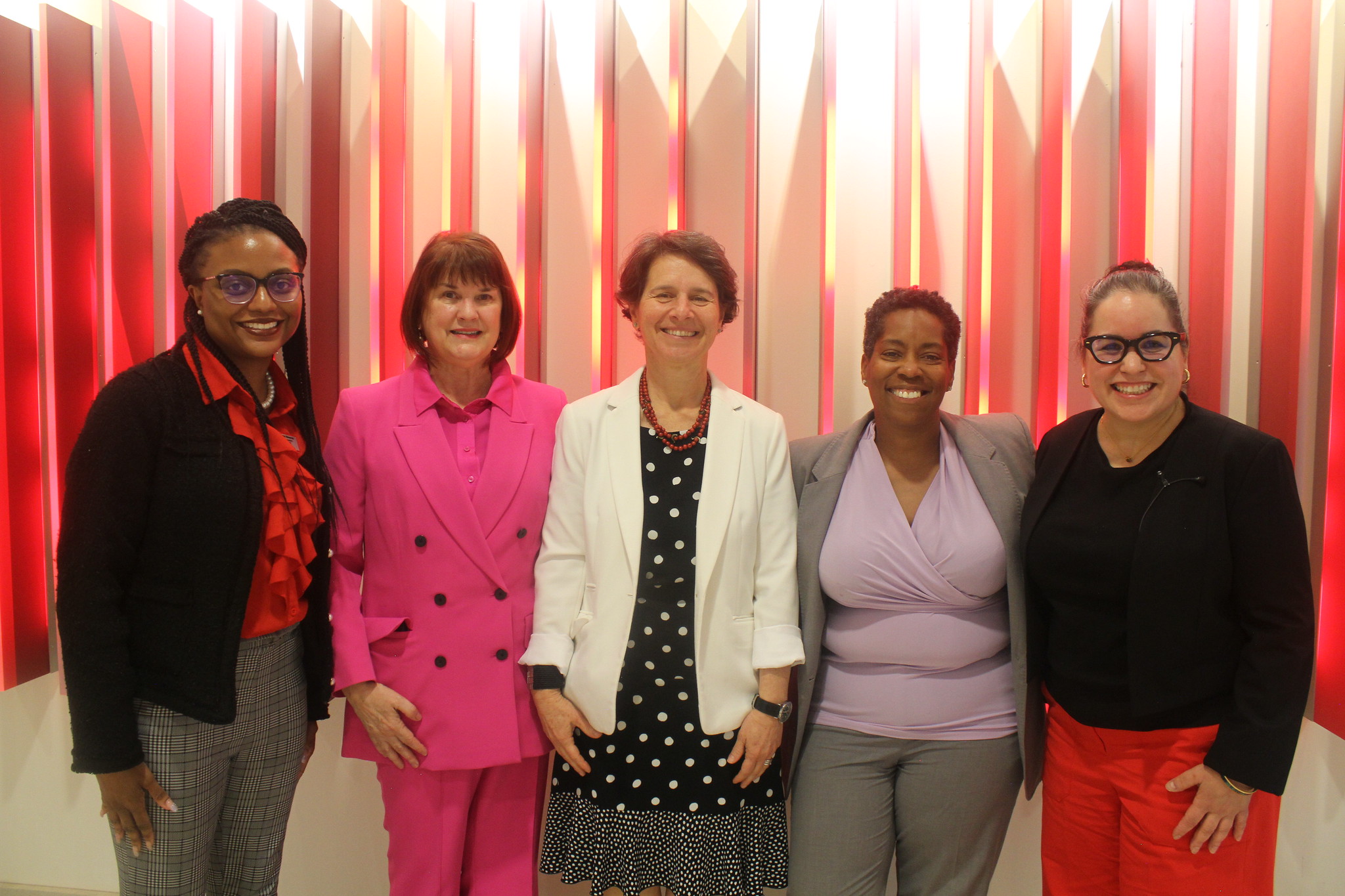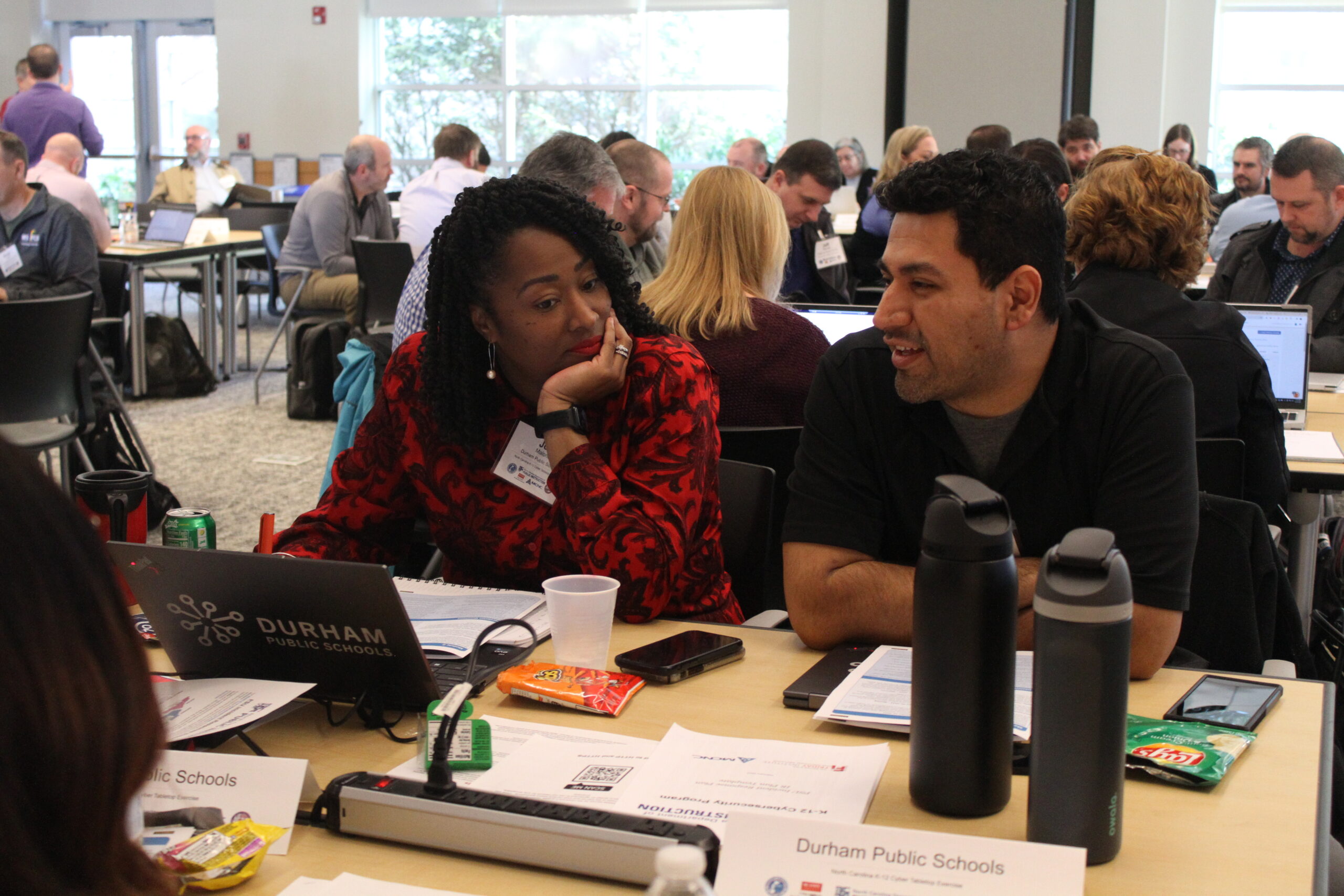Team of Researchers, Evaluators to Aid Science Teachers in Incorporating Environmental Health Issues into Teaching
The National Institute of Health Sciences has given a Science Education Partnership Award to a cross-sector team of researchers and evaluators that aims to improve teachers’ content knowledge and teaching strategies to integrate emerging environmental health issues into STEM instruction.
Shaun Kellogg, senior director of program evaluation and education research at the Friday Institute for Educational Innovation, is senior staff on the project, titled “TEACH Science Fellowship: A Professional Development Program to Enhance Teaching of Environmental And Computational Health Sciences.” Kellogg and Friday Institute Research Assistant Rebekah Davis will evaluate the project. They will focus their evaluation on improving and assessing program activities, including curriculum development and professional learning, for each year of the five-year grant.
Other members of the project team include Kathleen Gray, principal investigator and director of the Center for Public Engagement with Science (CPES); Kelly Ryoo, co-principal investigator and associate professor of learning sciences at the University of North Carolina at Chapel Hill; and Dana Haine, co-principal investigator and K-12 science education manager at CPES.
“It’s great to be even just a small part of this important work by the Center for Public Engagement with Science,” said Kellogg. “Not only is there a critical need for a high-quality STEM curriculum, but I believe the focus on pressing environmental issues relevant to local schools and communities will help truly engage students and improve their interest in STEM careers, of which there is no shortage here in North Carolina.”
The critical environmental issue at the center of this upcoming work with teachers will be focused on the high levels of per- and polyfluoroalkyl substances (PFAS) found in many industrial and consumer products, such as stain protectors, that are in the Cape Fear River and other sources of drinking water in multiple towns in central North Carolina. PFAS have harmful impacts on human health and can impact fish and other wildlife as well.
Confronting serious challenges such as this is just one reason for the need for a diverse biomedical workforce that works across disciplines to develop viable solutions to health and environmental challenges. Not only is there a lack of a skilled workforce in this field, but there also continues to be a disparity in STEM degree attainment and professions for those who identify as Black, African American, Hispanic, Latino, American Indian or Alaska Native—an untapped resource for STEM disciplines. The project team intends to increase perceived relevance of content and career opportunities for underrepresented students.
“As a researcher, I’m eager to see rural populations receive benefits from the amazing work done in our institutions of higher education—thus demonstrating ways researchers can make their work accessible to everyone,” said Davis. “The additional emphasis on increasing the diversity of the STEM career pipeline further broadens the potential impact of the project.”
Through this project, the research and evaluation team will bridge the gap between science curricula and new research being conducted. Currently, K-12 teachers generally do not have awareness of current science research and content that could engage students in real-world environmental issues. The team will work with scientists and teachers from underserved schools in areas where PFAs have been found in the water to co-design curricula; improve teacher content knowledge, pedagogy and student career interest; and disseminate curricula and teaching strategies.
“I’m excited about the potential of this project to make the content of required high school classes community specific and immediately tangible for teachers and students,” said Davis. “Giving teachers the information and guided practice needed to develop units of study that engage and activate students should have short- and long-term benefits—both through student awareness of the PFAS issue and through participating teachers sharing their work with other teachers across the state.”
The project team will work with two cohorts of eight teachers to create lessons in human health and ecosystems, test and revise those lessons, and share with other teachers who will be trained to use the materials. In future years of the program, the team will host regional workshops in multiple cities. The team estimates almost 100 teachers could be involved throughout the five years, which would impact and reach hundreds of North Carolina students.
- Categories:


